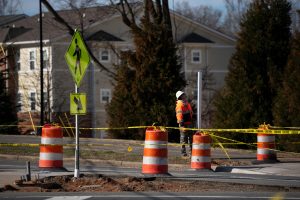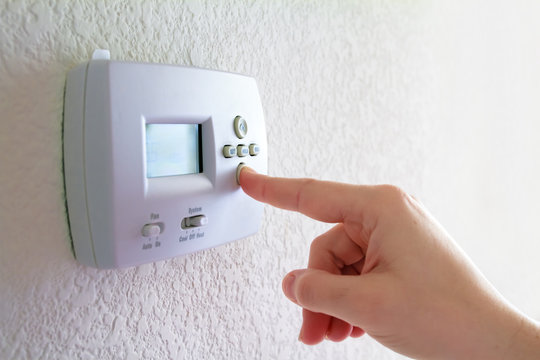Perception of time has been altered during pandemic
Hindsight allows for a unique perspective on the trials of the COVID-19 pandemic
April 8, 2021
As we are all painfully aware, this March marked one year of the coronavirus pandemic. Initially, I didn’t think COVID-19 would last until the summer, much less still be around in 2021. The pandemic definitely has not gotten the memo that this has gone on for too long. As we have reached this “Coronaversary,” I’ve heard a lot of people say things like “time has really flown” or “I can’t believe it’s been a whole year.” The truth is that time hasn’t flown by, and let me explain why.
First, I understand that these are pretty common sentiments regarding the passage of time. I think this natural, familiar conception has been exacerbated by the sheer fact that most of this year has been filled with an exceptional amount of nothing. My grandmother has always said to me that it isn’t the years in your life that count, but the life in your years. The fact of the matter is that — for the majority of people — there just hasn’t been much living this year. We’ve spent a little or far too much time with our families, completed our Netflix watchlists, attended hours of Zoom class and, hopefully, have had at least some phases of attempting our self-improvement goals.
When all is said and done, it will be undeniable that much of the past year has been spent simply waiting. We have been waiting for our various lockdowns to end, waiting for restrictions to lift, waiting for a vaccine and even waiting for the sun to rise and usher in a new day. It’s no wonder that so many people feel like time in the pandemic has moved quickly. When you live the same day over and over again, they tend to blend together into a snapshot, a single moment in time.
It is also important to note the value of hindsight in this perception. If you think back to each individual day, I think you will find that there was actually nothing fleeting about them.
There’s a quote from “The Art of Racing in the Rain” that is extremely applicable to this situation. In the movie, the narrator says, “Sometimes my life seems it has been so long and short at the same time. I feel as if I have lived for an eternity, and yet, it is as if no time has passed at all.” These conflicting perceptions can coexist, and it can be difficult to discern the differences between the two.
An interesting phenomenon that I’ve seen on social media, especially Tik Tok, is what I’ll call “Early-Pandemic Nostalgia.” Montages of whipped coffee, Chloe Ting workouts and “Outer Banks” are shown with a sort of pleasant sentimentality. This is an illusion, but I do admit I miss the days when I thought lockdown and the related restrictions were an ephemeral aspect of life. I thought it would be a two-week break from school — an extended Spring Break. I thought we’d make it to prom and to graduation. And of course, by the time college came around, everything would be normal again, right?
Wrong. I understand why people are starting to romanticize the beginning and the naivety that came with all the unknowns. It’s because we are still here, waiting. It’s easier to say that the time has “flown by” and to downplay the effects of it all with a nonchalant phrase rather than accept that it truly has sucked terribly.
But in truth, the pandemic hasn’t been all bad. There has been some beauty in the stillness of life — both in the extensive reflections prompted by quarantine and in the many opportunities for new beginnings that will emerge once all of the restrictions subside.
However, this hopeful reality doesn’t negate the unusual amount of tears and the inordinate amount of disappointment that has marked the endless stream of monotonous days. And that’s coming from someone who wasn’t even directly impacted by the virus itself. Though the pandemic has been an uphill battle, it’s important not to forget these days. They’ll always remind us of how far we have come.





















